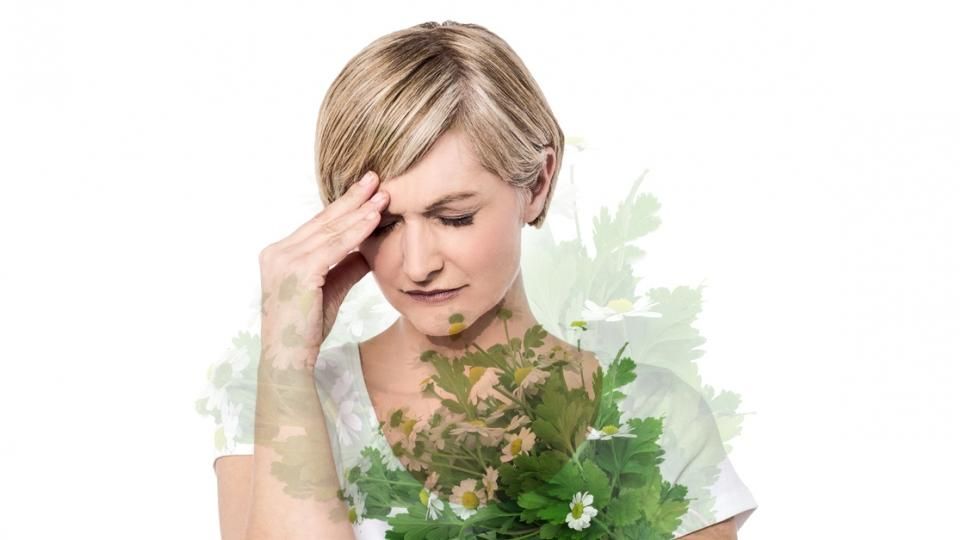
Question: I am 53 and have suffered from frequent debilitating migraine attacks since I was 14. The migraines present as extremely intense throbbing pain. I have tried a long list of treatments, including painkillers, supplements, suppositories, ‘Botox’ injections, biofeedback, acupuncture, osteopathy, exercise and exclusion diets, but nothing has given me much relief. I have to retreat each time into a pitch-dark silent room because I cannot stand the slightest bit of light, sound or even smells.
Often the migraine is accompanied by vomiting, and the pain is made worse by physical activity. The whole ‘migraine package’, which lasts about 36 hours, also includes the initial aura, mood swings, eye pain, nasty taste in my mouth, blurred vision and neck pain. Can you suggest anything that might be able to help?
L.M., via email
Answer: According to the World Health Organization, migraine is one of the most disabling chronic health conditions you can have. Although you’ve obviously tried a lot of conventional and alternative treatments with no success, don’t give up hope. Traditional herbal medicines have a long history of use for both preventing and treating migraines, and may be the answer to your symptoms. Here are the ones I recommend trying.
Feverfew
This herb (Tanacetum parthenium) has been part of the recorded traditional Western medicine ever since Greek physician Pedanius Dioscorides (40–90 CE) featured it in his encyclopaedia of herbal medicine, written nearly 2000 years ago. Today, feverfew is one of the most popular herbs for treating migraine, and there’s good scientific evidence to back this up.
In one study carried out at the University Hospital in Nottingham, 72 migraine sufferers were randomly given either one capsule per day of dried feverfew leaves or a matching placebo for four months, after which the treatments were switched, so the placebo group got the feverfew and vice versa for a further four months.
In the end, although feverfew had no effect on how long each migraine attack lasted, those taking the herb did enjoy significant reductions in the number and severity of attacks, as well as in the degree of vomiting. These significant improvements also came with no side-effects.1
In another study, German researchers found that feverfew, taken three times a day as a preventative, was significantly better than a placebo in reducing the average number of migraines a month in a group of 170 sufferers. The feverfew group saw an average reduction of almost two attacks per month compared with the one-attack reduction with the placebo.2
Although other studies have had mixed results, in general, feverfew appears to be safe, with only mild and transient adverse events, mostly gastrointestinal complaints and mouth ulcers.3
Goldenseal
The roots of this herbal rhizome plant (Hydrastis canadensis) may also be useful for migraine. It has sedative qualities, and is also an antioxidant and anti-inflammatory, relieving inflammation in the mucous membranes of the head
and throat.4
Berberine, one of the main active ingredients in goldenseal, has also been shown to reduce inflammation in blood vessels, even in patients who already have cardiovascular disease.5
Dandelion
Dandelion root (Taraxacum officinale) is a well-known diuretic, mild laxative and detoxicating agent, all of which may be helpful for relieving migraines. It’s also a rich source of potassium, a deficiency of which is often associated with migraines. One theory is that high blood potassium causes blood vessels to constrict, which is helpful, as many migraines are caused by dilated and inflamed vessels. In addition, it’s now known that a mutation of the TRESK (TWIK-related spinal-cord potassium channel) gene is linked with familial migraine with aura.6 Dandelion can top up the potassium shortfall as needed.
MigraSpray
Feverfew, goldenseal and dandelion – along with Polyporus officinalis, a fungus found on Russian larch trees used to treat severe depression and mood swings – are all found in the over-the-counter natural medicine MigraSpray (www.migraspray.com; www.migrainerelief.org.uk).
In a randomized, double-blind clinical trial (considered the gold standard for assessing whether a treatment works or not) conducted at the Independent Medical Research Center in Bangor, Maine, 41 migraine sufferers were divided into two groups to test the effectiveness
of MigraSpray against a placebo.
After one or two months, 66 per cent of those using MigraSpray reported complete relief of their symptoms and 88 per cent saw at least some degree of improvement. In contrast, in the placebo group, none had complete relief and 30 per cent saw some improvement. The average time lag between MigraSpray use and migraine relief was just six and a half minutes.7
While MigraSpray is generally safe, it should not be used prior to elective surgery, or by pregnant or lactating women. And, as feverfew can alter clotting time, MigraSpray should also not be used by anyone regularly taking anticoagulants like warfarin or aspirin, or other ‘blood-thinners’, unless clotting times have been checked and the all-clear given by the prescribing physician. The dose may also need to be lowered, or there may simply be contraindications for feverfew use.
Non-steroidal anti-inflammatory drugs (NSAIDs) like ibuprofen can also negate the usefulness of feverfew in the treatment of migraine headaches.8
Suggested dosage: The MigraSpray label recommends 10 sprays under your tongue at the first sign of an impending migraine or headache.
After administration, wait at least 30 seconds before swallowing to allow for absorption directly into your bloodstream through the mucosa under your tongue.
If you don’t feel relief after five minutes, you can repeat the process (but only one more time).
|
References |
|
|
1 |
Lancet, 1988; 2: 189–92 |
|
2 |
Cephalalgia, 2005; 25: 1031–41 |
|
3 |
Cochrane Database Syst Rev, 2015; 4: CD002286 |
|
4 |
www.herbwisdom.com/herb-goldenseal.html |
|
5 |
Adv Exp Med Biol, 2016; 928: 27–45 |
|
6 |
Nat Rev Neurol, 2010; 6: 643 |
|
7 |
www.healthyshopping.com/migraspray/executivesummary.asp |
|
8 |
Arch Intern Med, 1998; 158: 2200–11 |